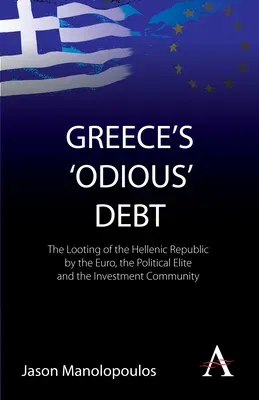Jason Manolopoulos
(Author)Greece's 'Odious' Debt: The Looting of the Hellenic Republic by the Euro, the Political Elite and the Investment CommunityPaperback, 5 May 2011

Qty
1
Turbo
Ships in 2 - 3 days
In Stock
Free Delivery
Cash on Delivery
15 Days
Free Returns
Secure Checkout

Part of Series
Anthem European Studies, Anthem Finance
Part of Series
Anthem European Studies
Part of Series
Anthem Finance
Print Length
304 pages
Language
English
Publisher
Anthem Press
Date Published
5 May 2011
ISBN-10
0857287710
ISBN-13
9780857287717
Description
Product Details
Author:
Book Format:
Paperback
Country of Origin:
US
Date Published:
5 May 2011
Dimensions:
21.34 x
13.46 x
2.54 cm
Genre:
Greece
ISBN-10:
0857287710
ISBN-13:
9780857287717
Language:
English
Location:
London
Pages:
304
Publisher:
Weight:
430.91 gm